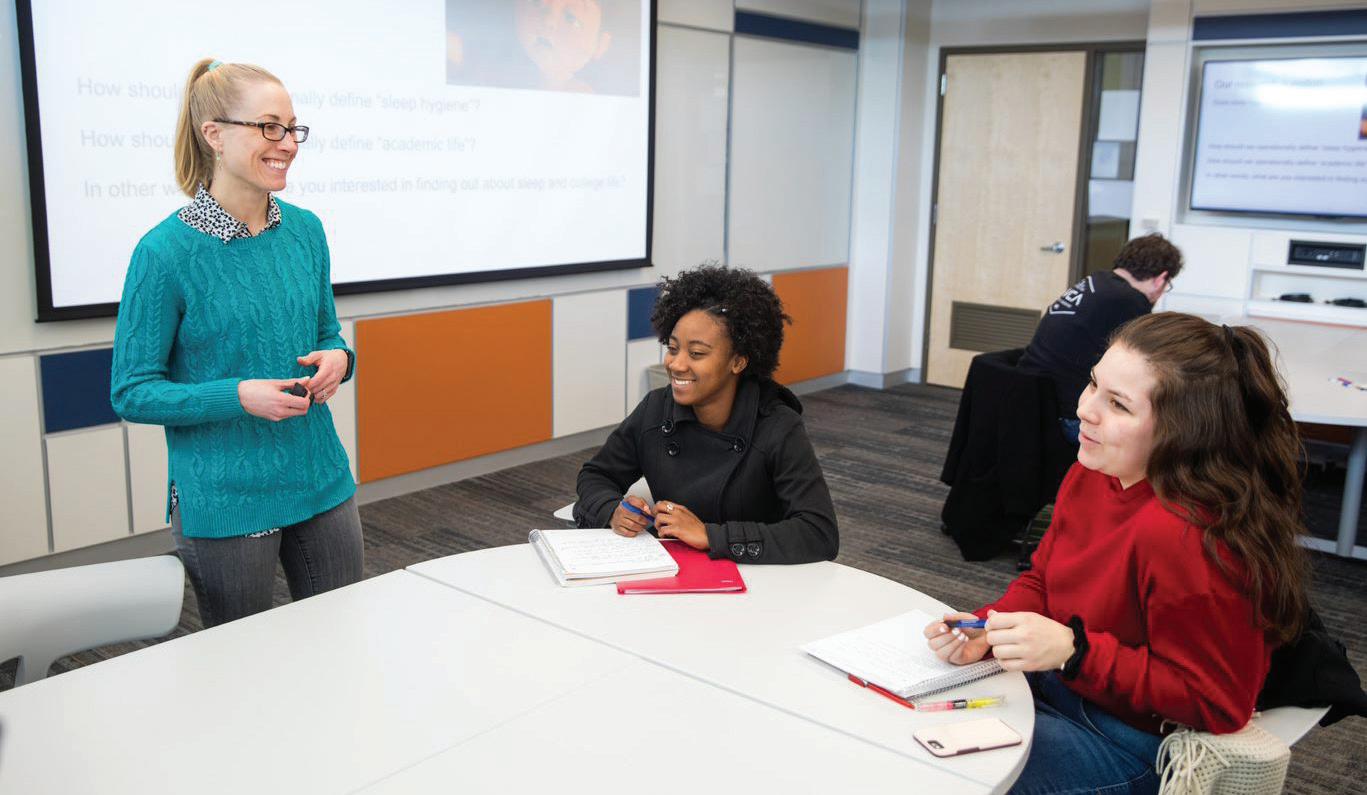
3 minute read
LETTER FROM THE DEAN
When I applied to become the next dean of the College of Liberal Arts and Education at the University of WisconsinPlatteville, the decision had as much to do with the name of the college as the place itself. I remember scanning the executive leadership advertisements and pausing with delight to see “liberal arts” and “education” in the title. I had been a chair of an educational studies department for nine years and had spent a total of 17 years working, teaching, and learning in top-ranked liberal arts colleges. As an advanced graduate student, I became a visiting instructor of Black studies at Amherst College, and the following year received a Consortium for Faculty Diversity Pre-Doctoral Fellowship to finish my dissertation at Denison University. Following these two incredibly rewarding intellectual and pedagogical experiences in liberal arts education, I became an assistant professor of educational studies and later sociology and Africana studies at Davidson College. With a doctorate in sociology, I developed as a scholar in interdisciplinary programs rooted in the liberal arts.
The job title signaled to me that there would be this synergy of vision, purpose, and mission among the humanities, social sciences, natural sciences, and education. While I knew the whole college would not “train teachers,” I trusted that students would learn more than pedagogy and management. Rather, in my mind, they would spend a great deal of time thinking through educational problems using the tools and perspectives from sociology, philosophy, history, literature, and criminal justice—just to name some of the programs. Within a college of liberal arts and education, I imagined future teachers, police officers, and crime investigators would be in conversation about the school-to-prison pipeline, or unjust schooling policies and practices. I imagined a place where it made sense to study the philosophy and history of race, gender, and class as students prepared for high-impact learning opportunities in environmental and conservation agencies. It would also be a place where the visual and performing arts infused all disciplines and challenged students to embrace creativity, improvisation, and design in their work. Ultimately, as a sociologist who landed in the field of education with a historical and sociological lens, I had no doubt that this deanship was divine intervention.
When asked “why Platteville?” throughout my campus visit, I was brutally honest about how I came to apply to UW-Platteville based upon the title of the deanship. My enthusiasm for and commitment to the liberal arts and education must have been evident, because I received a job offer without a sharp vision. In fact, I did not have a vision at all. As I stated to the search committee, and later to faculty, staff, and students, I felt strongly that it would have been ludicrous and disingenuous for me to have a vision for a place I had never seen and for a people I was just getting to know through a formal interview process. Understanding the necessity and importance of an organization having a vision, I stated the following during my job talk:
As we start a conversation about our vision, I want to outline some fundamental aspects of any vision that we might imagine together.
Strategic decision-making: Here I am thinking about the need to have a vision that is grounded in collaboration and innovation, and that guides the decisions we make daily and throughout the years.
Resources: Here I envision both economic resources and non-economic resources, such as time and space, which will allow students, faculty, and staff to succeed in the ways they choose.

Interdisciplinarity: Here I see a college identity that sends a clear message that we prepare students to solve complex problems for an unknown world by working at the intersection of multiple disciplines.
Here, I have provided the text as I wrote it in February 2022. Faculty and staff can judge to what degree strategic decisionmaking, resources, and interdisciplinarity have been aspects of our conversations.

After a year of meetings and a listening tour, edits and rewrites, disagreements and discussions, I am happy to introduce to our engaged alumni, generous donors, and supportive friends, our “Vision, Mission and Core Values” document that will guide our work in the college. Instead of undergoing a strategic plan, I started with a set of questions that would help us make strategic decisions: Who are we? What are our “sacred cows,” or things we are not willing to give up? What will we do well? The 2022–23 Annual Report aims to identify, define, explain, and illustrate how our vision, mission, and values reflect many of the things the college is already doing and underscore new directions we all wish to go. In my first year as Dean of the College of Liberal Arts and Education, I am also proud of the collaborative and inclusive process we implemented to produce a document that represents who we are, what we do well, and what we hold dear. Beyond a title that fits me well, I have a new purpose and renewed passion for the liberal arts and education at UW-Platteville.
With gratitude,
National Board Membership
Dr. Hilton Kelly, Dean of the College of Liberal Arts and Education, was recently selected as a Council of Fellows Board Member at the 2023 annual American Council on Education meeting in Washington D.C. The ACE Council of Fellows serves as the alumni organization for the ACE Fellows Program, a national leadership development program for higher education. Its mission is to provide opportunities for continued professional development and networking opportunities for former ACE Fellows and to promote, contribute to, and provide partial financial support for the ACE Fellows Program.










